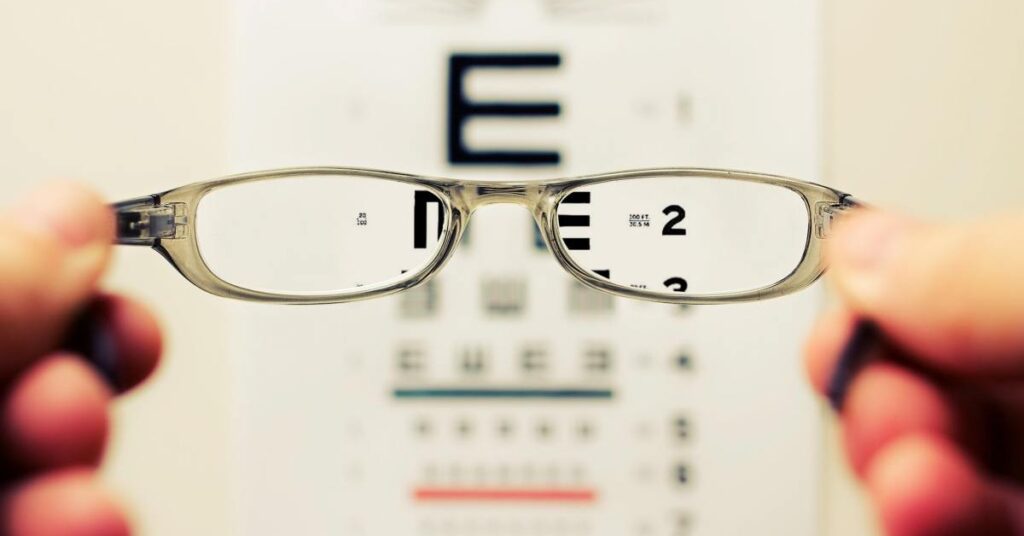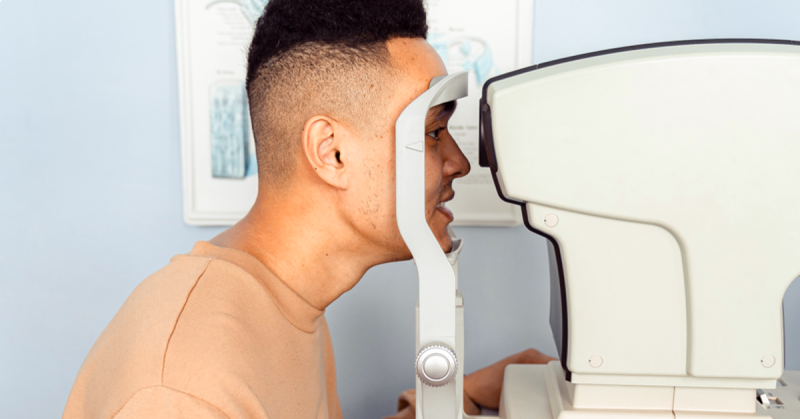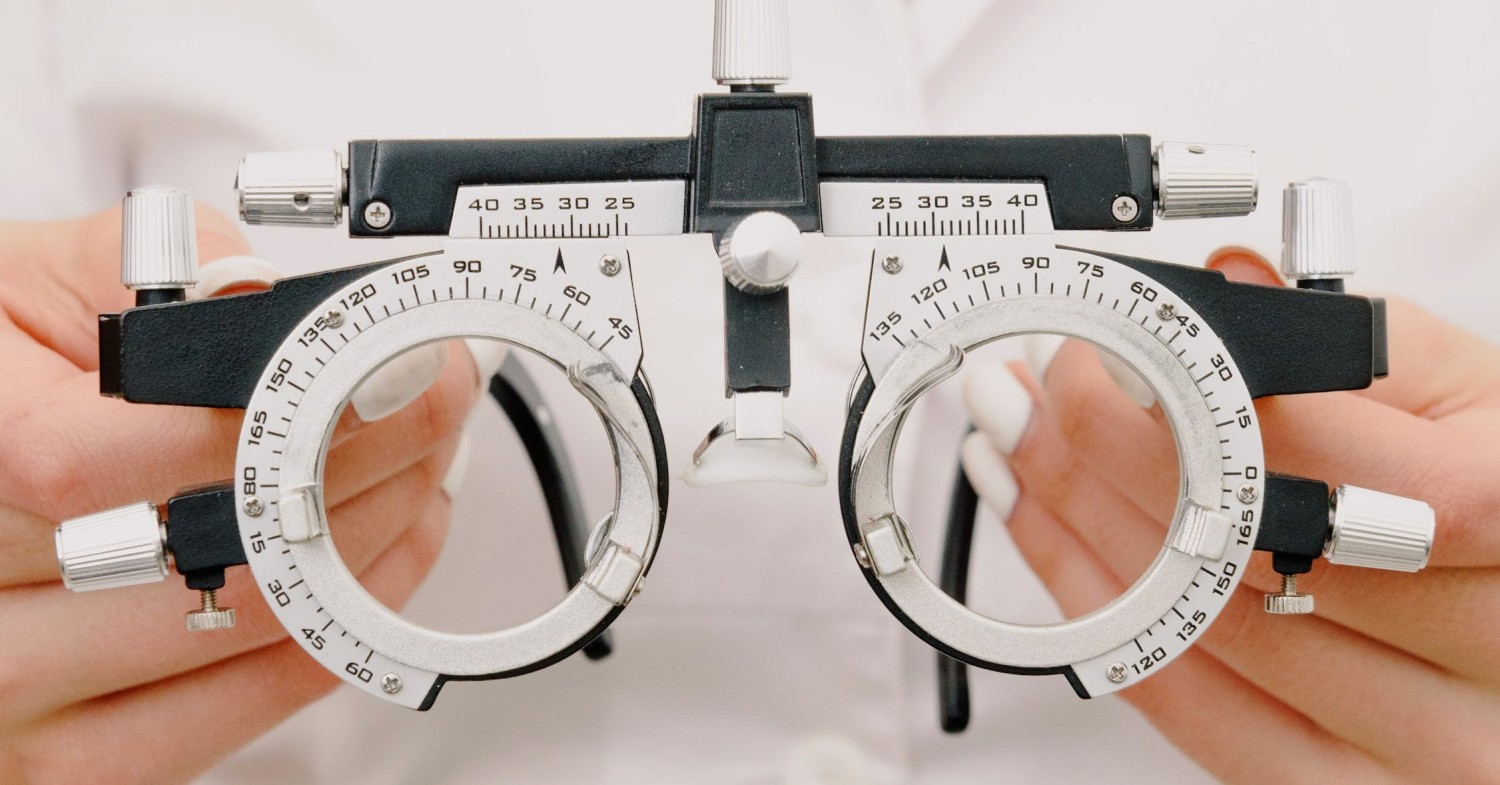
Why Become a Sports Vision Optometrist?
Sports vision optometrists work with patients at all levels, including [...]

In August of 2020, Time magazine reported that “The U.S. shed around 40 million jobs at the peak of the pandemic, and while some have come back, some will never return. One group of economists estimates that 42 percent of the jobs lost are gone forever.” The U.S. Bureau of Labor Statistics continuously tracks industries with the most rapidly declining wage and salary employment. Did optometry land on the list? Is optometry a dying field?
The short answer? Absolutely not. Even with the advent of improved AI technologies, online vision retailers, and increased automation, the job outlook for optometrists is surprisingly rosy.
This article dives deeper into the question: is optometry a dying field? It covers the following topics:
Let’s start with the basics by looking at what an optometrist does. The American Optometric Association (AOA) reports that optometrists perform the majority of America’s primary eye healthcare. They provide many essential eyecare functions; these include writing prescriptions for contact lenses and glasses, providing low-vision therapy, and prescribing medications to treat eye conditions like glaucoma. Like all patient-facing medical professions, optometry requires proficiency in both soft and hard skills.
Demand for vision care is increasing as the result of an aging population. The field of optometry is not only imminently necessary—it’s expanding.
Both optometry and ophthalmology are on the precipice of significant change, though. New AI technologies and the rapidly increasing number of online vision retailers are already turning the industry on its head.
However, the impacts of this evolution haven’t always been easy to predict. Experts in the field once thought LASIK surgery would make glasses obsolete. Instead, spectacles are more popular than ever.
U.S. News & World Report ranks optometrist as the 13th-best healthcare job in the nation. The U.S. Bureau of Labor Statistics (BLS) places optometry’s growth rate at ten percent between 2021 and 2031—five percent faster than the national average. Unless optometry is experiencing a late-stage supernova phase (note: it isn’t!), its prospects seem secure.
Emerging technologies are transforming the future of optometry. Consider the proliferation of online eyecare merchants, a fairly recent phenomenon. Eyeglass and contact sales have increased by nearly 11 percent since 2017, according to IBIS World. Experts are currently developing a dependable online vision test. If effective, it could upend the industry.
Artificial intelligence (AI) is also rapidly changing the game. Optometry Times reports that AI can improve medical imaging, help diagnose conditions like keratoconus, and identify glaucoma. Technologies that include fundus photos, optical coherence tomography (OCT) data, wavefront aberrometry, and corneal topography can also help patients better understand their conditions and make more intelligent medical decisions.
Optometrists must first obtain an undergraduate degree. Some programs (known as 3+4 programs) allow students to earn their bachelor’s degree and Doctor of Optometry degree on a continuous track, while most earn their bachelor’s degree separately.
OD programs do not require a specific major, but candidates typically pursue a science such as biology, microbiology, physics, or chemistry. The majority of optometry programs require candidates to have completed coursework in calculus, anatomy, physiology, organic chemistry, microbiology, psychology, biochemistry, and statistics. Programs occasionally ask applicants to complete shadowing hours at a practicing optometrist’s office as well. The Association of Schools and Colleges of Optometry (ASCO) reports that the average undergraduate GPA for optometry applicants is 3.36.
All U.S. and Canadian optometry schools require the Optometry Admission Test (OAT), testing applicants’ knowledge of natural sciences (primarily the prerequisite coursework), physics, reading comprehension, and quantitative reasoning. Most applicants take the OAT during undergraduate studies.
There are only 23 accredited OD programs in the United States; admission is competitive. Coursework covers topics including vision science, optics, clinical decision-making, general medicine, pharmacology, ocular disease, and patient care. Programs sometimes also offer opportunities for specialization. The New England College of Optometry (NECO) offers three concentration options: low-vision rehabilitation, pediatric optometry, and cornea and contact lens. All three impose unique curricular requirements.
On top of classroom (didactic) coursework, all optometry students must complete clinical rotations in healthcare settings. NECO requires rotations during all four years of the program.
While an OD is not a Medical Doctor (MD), optometrists are doctors all the same. Ophthalmologists are the only eye physicians. Ophthalmologists perform the same functions as optometrists, but also perform eye surgery (such as LASIK and cataract surgery) to surgically treat serious eye diseases and correct vision problems. Optometrists often work alongside ophthalmologists to prepare patients for surgery and to assist them with recovery. Ophthalmologists attend medical school and complete an ophthalmology residency program. According to the BLS, ophthalmologists earn a mean annual income of $270,090.
Once a student graduates with an OD and passes a series of National Board of Examiners in Optometry (NEBO) examinations and completes any additional state requirements, they are ready for licensure. The majority of states require passage of NEBO parts i, ii, and iii, plus the Treatment and Management of Ocular Disease (TMOD) exam. A law and ethics test is a common additional requirement.
There are many online continuing education opportunities for optometrists, but there are currently no completely online OD programs. NECO plans to launch a hybrid program in the fall of 2023. The program will offer online coursework and local clinical placements for students. It’s geared toward students without access to local programs. Studying online allows those in rural areas and states without an accredited optometry program (32 states lack one) to learn optometry without having to relocate.
(Last Updated on February 26, 2024)
Questions or feedback? Email editor@noodle.com

Sports vision optometrists work with patients at all levels, including [...]

American students can choose from among 24 accredited Doctor of [...]

Optometrists have above-average job prospects but face challenges like strict [...]

Optometrists must obtain a Doctor of Optometry (OD) and adhere [...]

Low-vision optometrists treat people with eye diseases that result in [...]
Categorized as: Optometry, Nursing & Healthcare